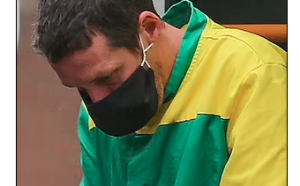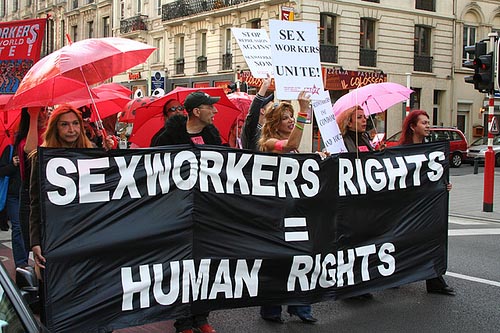Yesterday, March 3, was International Sex Worker Rights Day. Since 2001 sex workers all over the world have marked the day to raise awareness of sex workers’ rights as human rights, and to highlight the laws and conditions that make their work less safe – laws and conditions that, unfortunately, are often put in place in misguided attempts to “end prostitution”.
The most vital and influential activism in sex workers’ rights is happening in the developing world and March 3rd is no exception. The day originated in 2001 when 25,000 sex workers marched in Calcutta to bring attention to the problems sex workers encounter. Problems that, believe it or not, are much the same as those encountered in many other areas of work.
The stigmatisation of sex workers of all kinds all over the world – men and women, cis and transgender, escorts, streetwalkers, porn stars and more – has knock-on effects that make the work more dangerous rather than less so. In places like New York where carrying condoms can be seen as just cause to arrest someone on suspicion of prostitution, sex workers have stopped using this vital tool in disease prevention.
In countries like Cambodia where Western funds push for criminalisation of all sex work purportedly to combat forced trafficking, sex workers have been rounded up (the willing and the unwilling workers alike) and thrown into internment camps where the experience even more abuse and violence.
Unfortunately in many countries, sex workers who are attacked can expect to be arrested or abused if they go to the police. Ask Hanna Morris, who reported an armed robbery in 2009 only to find herself arrested and the police utterly uninterested in the gun-carrying thugs who had entered her property.







[…] Demonising sex workers makes their lives more dangerous […]